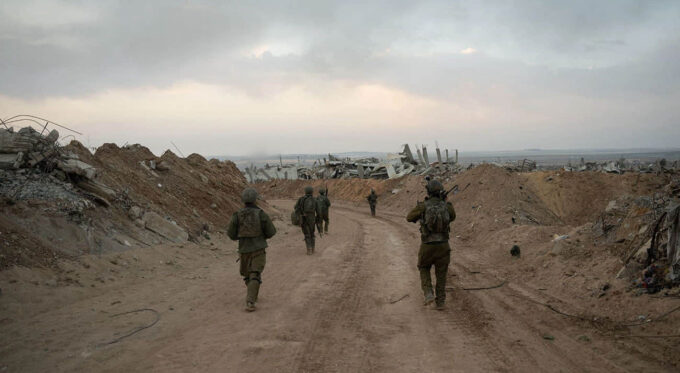In Israel, military operations have been renewed — the army has launched a large-scale ground offensive in the Gaza Strip

This has happened against the backdrop of prolonged unsuccessful negotiations in Qatar regarding a ceasefire, which have yielded no results, increasing tensions in the region and causing global concern. According to government sources and media reviews, the Israeli military has announced the beginning of extensive actions aimed at regaining "operational control" over parts of the devastated Palestinian territory. According to representatives of the Israeli army, their forces have currently "eliminated dozens of terrorists, destroyed strategic targets of terrorist infrastructure," and continue to establish positions at key sites in Gaza. Based on official reports, the operation aims to stabilize the situation in a territory long mired in chaos and violence. Medical and rescue services have reported tragic consequences from night and daytime strikes in districts in the north, center, and south of Gaza — preliminary data indicate that at least 130 people have been killed as a result of these airstrikes and rocket attacks, including many women and children. These losses have increased as hostilities have intensified, and the situation remains tense, with numerous injured people requiring urgent assistance. A few hours earlier, following the official announcement of the ground operation, the office of Prime Minister Benjamin Netanyahu issued a statement reporting that Israel would allow the entry of basic food supplies into the Gaza Strip. The goal is to prevent a full-scale humanitarian crisis, which is already beginning to manifest due to the blockade and growing resource shortages. Earlier that day, the Prime Minister expressed his willingness to negotiate with Hamas to cease fighting. However, his conditions for a ceasefire remain unacceptable to the Islamist organization. Specifically, Israel insists on the release of all hostages, the destruction of Hamas forces, and the dismantling of governing structures in Gaza. Nevertheless, the negotiations in Qatar, according to informed sources, have so far failed to produce any significant results. It is worth recalling that the conflict in the region escalated in October 2023, when Hamas launched a large-scale attack on Israeli territory. As a result of these actions, over 1,200 people were killed, mostly civilians, and around 250 Palestinians became hostages of the organization. Following the recent events, Israeli forces are holding 58 additional hostages, many of whom are considered dead, with about 30 believed to be killed. Islamist negotiators are attempting to achieve a two-month ceasefire during which Hamas commits to releasing half of the hostages, while Israel would free hundreds of Palestinian prisoners and end the full blockade of Gaza, ongoing since March 2023. Diplomatic efforts are focused on securing strong guarantees from the United States to ensure the success of negotiations for a long-term ceasefire. However, according to sources, by the end of the week, no significant progress had been made: both sides remained firm in their positions. Hamas, which demonstrated some concessions last week by releasing one American-Israeli hostage, also plays a crucial role in political and military calculations, insisting on the complete end of the war and the withdrawal of Israeli troops from the region. It is evident that the situation will remain tense, and the prospects for a quick peace are distant. The international community continues to urge both sides to exercise restraint, seeking to prevent further escalation of the conflict and a humanitarian catastrophe that is increasingly unfolding in the multi-million-strong Gaza Strip.

